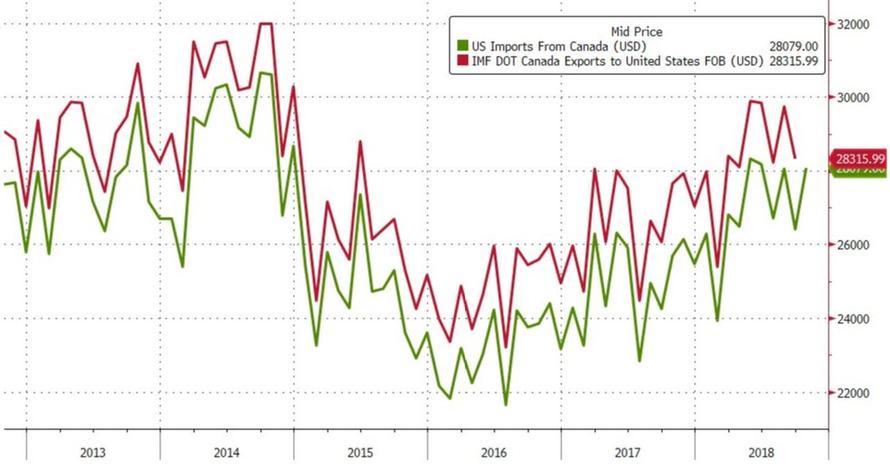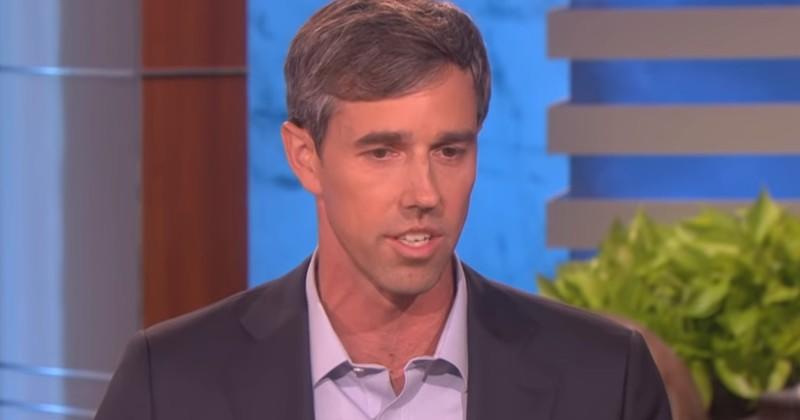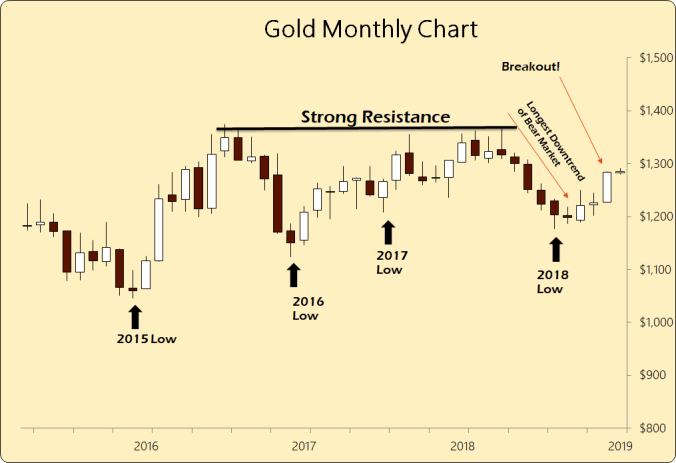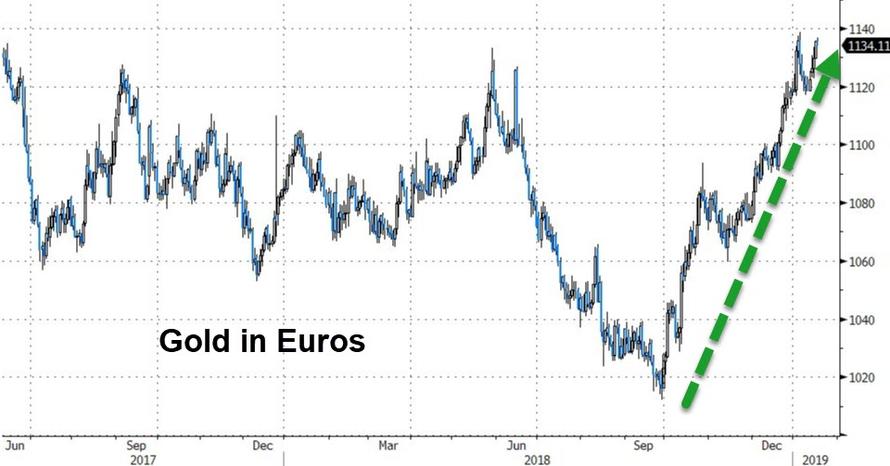Before the 2016 US presidential campaign, former Trump attorney Michael Cohen agreed to pay small IT firm to rig online polls in his boss’s favor, according to the Wall Street Journal.

And instead of the $50,000 he was promised, Cohen gave the man, John Gauger, a blue Walmart bag with between $12,000 and $13,000 in cash and a boxing glove that Cohen said had been worn by a Brazilian mixed-martial arts fighter.
Cohen has disputed the account – but not the relationship with Gauger’s firm, RedFinch – saying “All monies paid to Mr. Gauger were by check.”
In January 2014, Mr. Cohen asked Mr. Gauger to help Mr. Trump score well in a CNBC online poll to identify the country’s top business leaders by writing a computer script to repeatedly vote for him. Mr. Gauger was unable to get Mr. Trump into the top 100 candidates. In February 2015, as Mr. Trump prepared to enter the presidential race, Mr. Cohen asked him to do the same for a Drudge Report poll of potential Republican candidates, Mr. Gauger said. Mr. Trump ranked fifth, with about 24,000 votes, or 5% of the total.
After making the cash payment at Trump Tower, Mr. Cohen kept saying he would pay the balance of the $50,000 but never did, Mr. Gauger said. Mr. Cohen also promised to get RedFinch work for Mr. Trump’s campaign. He set up two phone calls for Mr. Gauger with campaign officials, who didn’t hire him, he said. –WSJ
In addition to owning RedFinch, Gauger is chief information officer at Liberty University in Virginia, where evangelical leader Jerry Falwell Jr. – an ardent Trump supporter, is president. Cohen met Gauger in 2012 when Falwell invited Trump to give a speech. Gauger helped Cohen set up an Instagram account and gave him his cellphone number.
Cohen would then ask Gauger for help over the next several years which would boost positive internet search results for Cohen and friends, according to Gauger. While Cohen didn’t pay for much of that work, he often promised to connect RedFinch with Trump hotel and golf-course executives, though Gauger says that never happened.

Hilariously, in May 2016 Cohen also asked Gauger to craeate a Twitter account – @WomenForCohen, which was run by a female friend of Gauger and described Cohen as a “sex symbol,” praising his looks and character, while promoting his appearances and statements boosting Trump’s candidacy.
And while Gauger says he never received the rest of the $50,000 he was owed, Cohen still requested – and received – a $50,000 reimbursement from Donald Trump and his company for the work done by RedFinch, according to the Journal, citing a government document and a person familiar with the matter. The reimbursement – based on a handwritten note by Cohen, was paid largely out of Trump’s personal account.
Trump attorney Rudy Giuliani said that Cohen’s full reimbursement for the $50,000 while paying RedFinch less shows the former Trump lawyer to be a thief. “If one thing has been established, it’s that Michael Cohen is completely untrustworthy,” said Cohen.
Cohen shot back, saying that he did was “at the direction of and for the sold Benefit of” Donald Trump, and that he regrets his “blind loyalty to a man who doesn’t deserve it.”
Federal prosecutors noted the reimbursement when they charged Cohen in August with eight felonies – including arranging hush-money payments to a porn star and a Playboy model who say Trump had affairs with them.
Prosecutors wrote in a charging document that when Mr. Cohen asked Trump Organization executives for a $130,000 reimbursement for a hush payment he made to Stephanie Clifford, the porn actress known as Stormy Daniels, he also scrawled a handwritten note asking for $50,000 he said he spent on “tech services” to aid Mr. Trump’s campaign. Prosecutors didn’t name the company providing those services, but people familiar with the matter say it was RedFinch.
…
Mr. Cohen has pleaded guilty to campaign-finance violations, tax evasion, lying to Congress and other charges. He was sentenced last month to three years in prison. None of the charges were connected to his interactions with Mr. Gauger and RedFinch. –WSJ
Gauger’s attorney, Charles E. James Jr. of firm Williams Mullen, said that Gauger was interviewed by federal prosecutors about his relationship with Cohen over six years, fom their first meeting in 2012 until last April, when Cohen’s home, office and hotel room were raided by the FBI.
Gauger said that while Cohen promised him profitable work for the Trump campaign, his activities for Trump were relegated to the unsuccessful rigging of polls.
Reimbursements to Cohen, totaling $420,000, was paid mostly from Trump’s personal account – which included $180,000 to pay Stormy Daniels and RedFinch, as well as a $60,000 bonus and another $180,000 to cover taxes he would owe since the money would be considered income, according to prosecutors.
Cohen did give Gauger some other paying work – hiring RedFinch to create positive web content about the CEO of CareOne Management, a New Jersey assisted-living company that gave Cohen a consulting contract.
Mr. Cohen sent RedFinch checks totaling $50,000 for that work, Mr. Gauger said. Mr. Cohen collected $200,000 from CareOne but didn’t pay taxes on it, according to the charging document filed by federal prosecutors, who didn’t identify the assisted-living company by name. Mr. Cohen pleaded guilty to evading taxes on that income. CareOne didn’t respond to a request for comment.
Mr. Cohen asked Mr. Gauger to create the @WomenForCohen account, still active in 2019, to elevate his profile. The account’s profile says it is run by “Women who love and support Michael Cohen. Strong, pit bull, sex symbol, no nonsense, business oriented and ready to make a difference!” –WSJ
Gauger says he and Cohen last spoke in April 2018 following the raid by federal agents.

via RSS http://bit.ly/2T1Sbdu Tyler Durden






 A
A  Back in 2016, the Obama administration passed an overtime-pay regulation that would have required employers to pay overtime for salaried employees who earn less than $47,476 per year. But its implementation was blocked by a federal judge in November 2016 in response to a lawsuit filed by states and businesses. That regulation is back in the news, however, after the Trump administration has spent months re-examining the issue and seems close to a final decision. Let’s hope the administration makes the right call, writes Veronique de Rugy. After all, raising the cost of employing workers is never a recipe for increasing employment.
Back in 2016, the Obama administration passed an overtime-pay regulation that would have required employers to pay overtime for salaried employees who earn less than $47,476 per year. But its implementation was blocked by a federal judge in November 2016 in response to a lawsuit filed by states and businesses. That regulation is back in the news, however, after the Trump administration has spent months re-examining the issue and seems close to a final decision. Let’s hope the administration makes the right call, writes Veronique de Rugy. After all, raising the cost of employing workers is never a recipe for increasing employment. In American history, the Pinkertons are a not-so-fondly remembered private security agency that did the government’s dirty work throughout the late 1800s and early 1900s: breaking up labor unions and arresting gang members (
In American history, the Pinkertons are a not-so-fondly remembered private security agency that did the government’s dirty work throughout the late 1800s and early 1900s: breaking up labor unions and arresting gang members (


